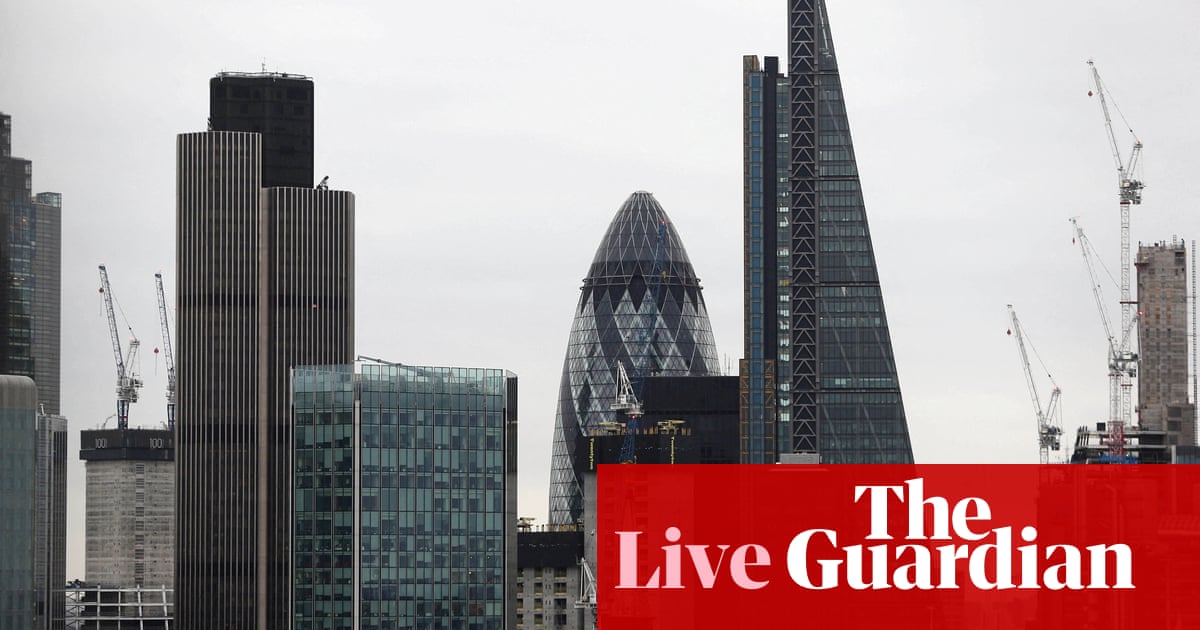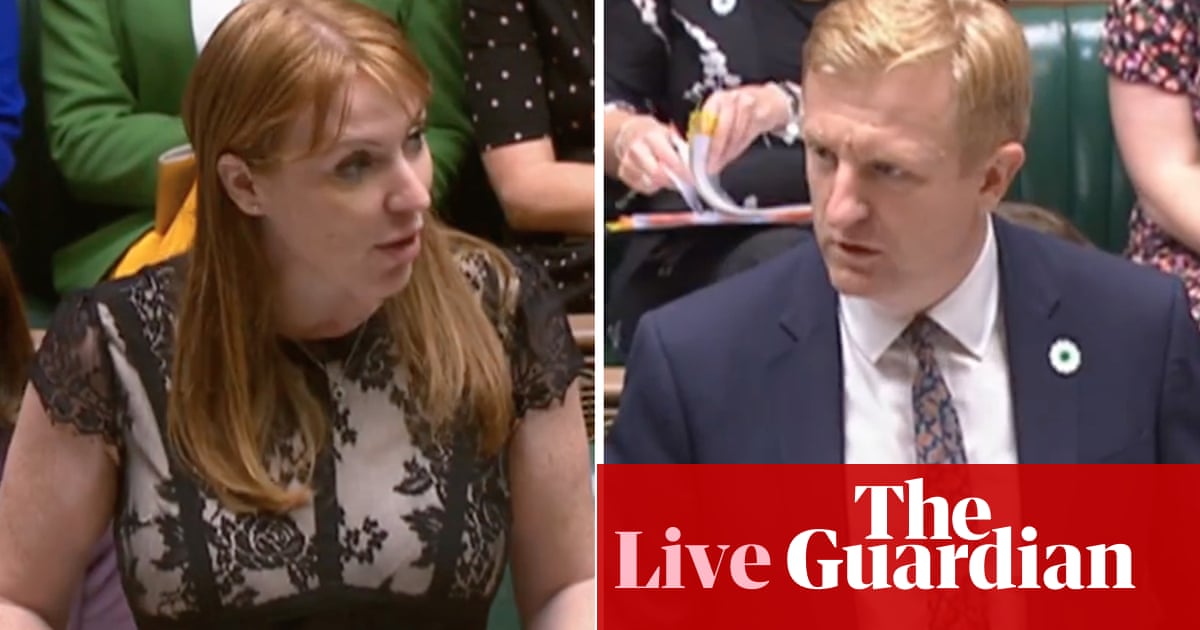
UK business activity shrinks most since financial crisis excluding Covid period
The risks of a UK recession have risen as business activity is shrinking at the fastest pace since the financial crisis, when months hit by Covid-19 lockdowns are excluded, according to a closely-watched survey.
A steeper downturn in the dominant service sector is weighing on the UK economy, with overall business activity at a 32-month low in September, the ‘flash’ estimate from S&P Global showed.
Key findings (any reading below 50 signals contraction):
Flash UK PMI Composite Output Index at 46.8 (Aug: 48.6). 32-month low.
Flash UK Services PMI Business Activity Index at 47.2 (Aug: 49.5). 32-month low. Flash UK Manufacturing Output Index at 44.6 (Aug: 44.1). 2-month high.
Flash UK Manufacturing PMI at 44.2 (Aug: 43.0). 2-month high.
Closing summary
Britain’s economy is at growing risk of recession, with industry figures showing the sharpest monthly fall in private sector activity, outside of the Covid pandemic, since the financial crisis.
In a sign that higher interest rates and the cost of living crisis are combining to depress consumer demand, the latest snapshot from S&P Global and the Chartered Institute of Procurement and Supply (Cips) showed a steep drop in the UK’s dominant service sector and manufacturing output in September.
Aside from pandemic disruptions to the economy, the latest decrease in the purchasing managers’ index (PMI) was the steepest since March 2009.
On Thursday, the Bank of England halted its most aggressive round of interest rate increases in decades on Thursday amid growing concerns over the economy, holding borrowing costs at 5.25% after 14 previous rises. It said it was given early sight of the S&P Global/Cips data before its decision.
European shares are still drifting lower, with the exception of the UK’s FTSE 100 index which is 25 points, or 0.3%, ahead at 7,703. On Wall Street, the Dow Jones is flat, the tech-heavy Nasdaq has gained 0.4% and the S&P 500 edged 0.2% higher.
With this, we are wrapping up for the day and the week.
Loss of US services momentum holds back economy – PMI
Business activity in the US flatlined in September, the worst performance in seven months, as the services sector lost momentum and manufacturers reported a drop in new sales, according to a survey.
The latest purchasing managers’ index (PMI) flash survey from S&P Global showed a slight drop in the overall output index to 50.1 last month from 50.2 in August, pointing to a slight expansion (any reading above 50 signals expansion; any reading below indicates a contraction).
Manufacturers and service providers reported muted demand. New orders fell at the fastest pace this year so far as demand for services slipped further into negative territory. Manufacturers also saw a drop in new sales, albeit at a slightly softer pace. Cost pressures ticked higher again, as input prices rose at a marked pace. Nonetheless, the rate of cost inflation was much weaker than those seen on average throughout the last three years, S&P Global said.
Key findings:
Flash US PMI Composite Output Index at 50.1 (August: 50.2). 7-month low.
Flash US Services Business Activity Index at 50.2 (August: 50.5). 8-month low.
Flash US Manufacturing Output Index at 49.7 (August: 48.5). 2-month high.
Flash US Manufacturing PMI at 48.9 (August: 47.9). 2-month high.
TikTok has matchmaking service for staff to play cupid for co-workers
Hibaq Farah
TikTok has an internal matchmaking service for employees to introduce their colleagues to friends and family members, it has been revealed.
The channel, called Meet Cute, sits on the workplace tool used by thousands of TikTok employees around the world for document hosting, video conferencing. It also helps people find a potential romantic partner from among their colleagues.
On the platform, which was first reported by Forbes, employees can advertise their family, friends or acquaintances to colleagues, with a feed of posts that show information that typical dating apps would show, such as height and weight. The service also allows employees to comment on the posts and evaluate the people who come up on the feed.
Labour to strengthen watchdog to avoid repeat of ‘disastrous’ Truss budget
Ministers would have to consult the official watchdog on major tax and spending changes under Labour plans that would prevent a repeat of Liz Truss’s ill-fated mini-budget, the shadow chancellor, Rachel Reeves, has said.
The move would ensure the Office for Budget Responsibility (OBR) was not “gagged” by future prime ministers and chancellors trying to avoid an official financial forecast, she said.
A Labour government would also introduce legislation to ensure that the OBR had the power to independently publish its own impact assessment of any major fiscal event making permanent tax and spending changes, she pledged before a visit on Friday to the London Stock Exchange with the party leader, Keir Starmer.
As UK mortgage interest rates fall, should you choose a two-year or five-year fix? Read this piece by our Money editor Hilary Osborne.
Houses prices in Germany plunged nearly 10% between April and June, the biggest fall on record.
Prices fell by 9.9% in the second quarter on a year earlier, the largest decline since the series began in 2000, according to Germany’s Federal Statistical Office. House prices reached an all-time high in the second quarter of 2022 during a post-pandemic boom, and have fallen every quarter since then.
CBI: Manufacturing output, orders worsen in September
The latest CBI industrial trends survey paints a gloomy picture for manufacturing.
All the main measures are down, including output; total orders, which fell to a five-month low, a net balance of -18 in September from -15 in August, driven by a further decline in overseas demand; export orders declined to -23 from -18 (the balance deducts the number of manufacturers who said orders rose from those reporting they fell).
This suggests production will continue to contract, said Gabriella Dickens, senior UK economist at Pantheon Macroeconomics.
The further decline in the CBI survey in September chimes with other evidence that the downturn in the manufacturing sector has further to run.
And the true picture probably is gloomier, given that the message from the CBI survey still is stronger than that from the equivalent balance in the S&P Global/CIPS manufacturing PMI. We are inclined to place more weight on the latter; the CBI survey has a smaller sample size and asks respondents to compare orders to “normal” levels, rather than to the previous month, as the PMI does.
On balance, then, we think manufacturing output will continue to tick down over the coming few months, as demand remains weak and firms continue to reduce their excess stock.
The CBI survey, however, adds to our conviction that the rate of increase in the core goods consumer prices index will slow in the second half of this year. While the net balance of manufacturers intending to increase selling prices over the next three months increased to +14, from a 30-month low of +8 in August, it was consistent with core producer output price inflation remaining around 1%.
Amazon to put ads on streaming services
Amazon has become the latest tech company to introduce advertising on its streaming services next year in countries including the US, UK, Germany and Canada.
In a blog post, Amazon said Prime Video content will include “limited” ads from early next year. It added that this will enable it to continue investing in TV content and increase investment “over a long period of time”.
Amazon said it aimed to have “meaningfully fewer ads than linear TV and other streaming TV providers”. Customers will also be able to pay extra for an ad-free option for an additional $2.99 per month in the US. It will share pricing for other countries at a later date.
The US tech giant said:
Ads in Prime Video content will be introduced in the US, UK, Germany, and Canada in early 2024, followed by France, Italy, Spain, Mexico, and Australia later in the year. No action is required for Prime members. We’re not making changes in 2024 to the current price of Prime membership.
We will email Prime members several weeks before ads are introduced into Prime Video with information on how to sign up for the ad-free option if they would like.
While the rest of Europe is still a sea of red, the UK index of blue-chip stocks has turned positive, boosted by AstraZeneca, which reported promising clinical results on a breast cancer drug.
The FTSE 100 index is up 40 points, or 0.5%, at 7,718. AstraZeneca shares rose 2.5% while the online grocer Ocado is the main riser, up 5.2%. AstraZeneca reported that an experimental precision drug it is developing with Japanese drugmaker Daiichi Sankyo slowed the progression of breast cancer in a late-stage trial.
Ocado bounced back (a bit) after a 20% slump in the shares yesterday – its worst drop in 11 years after it was downgraded by a City broker. This wiped nearly £1.4bn off the company’s market value, resulting in paper losses of £32m for the co-founder and chief executive Tim Steiner. BNP Paribas Exane analyst Andrew Gwynn downgraded his recommendation on Ocado to ‘underperform’ from ‘neutral’.
Ocado was a big beneficiary of the shift to online shopping during the Covid-19 pandemic but online sales have fallen back since then, as shops reopened.












